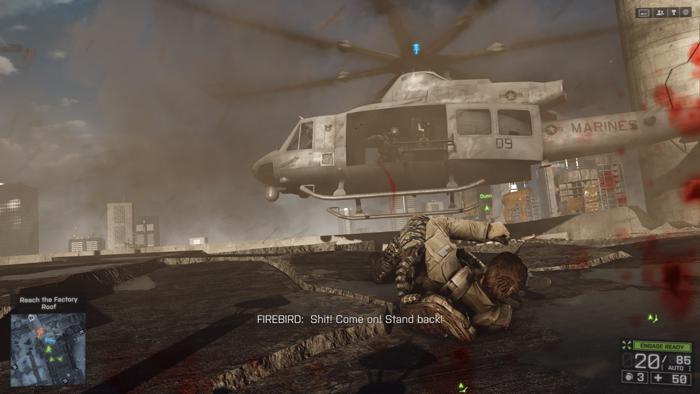Graphics memory - Final Words & Conclusion
Graphics memory usage
Before we move on-wards into the conclusion it is handy to know how much graphics memory the game requires in a preferred resolution. You'll notice that overall 2GB graphics cards are sufficient and thus the generic rule of thumb here for maximum quality mode with complex MSAA levels at 2 AA samples. So a graphics card with 2 GB of graphics memory is really recommended. Should you have less available and run into performance issues, the easiest way out preventing frames from being swapped back and forth in that framebuffer is to select medium quality settings or to disable MSAA.
In the above chart the values is graphics memory usage in MB. Once you go Ultra and have MSAA levels enabled starting at 1600x1200 there will be a turning point where the game utilizes more than 1 GB of graphics memory. Overall the advise is simple enough, make sure you have a graphics card with 2 GB of graphics memory when using HIGH or Ultra image quality modes. Now we switch in-between 2xAA / 4xAA and the image quality modes ( ULTRA) to monitor framebuffer utilization. The above results are all measured at all four primary resolutions tested today. As you can see we are hovering at roughly 2 GB of graphics memory. Ultra HD however is another level, we are closing in on 3 GB fast ! The 4GB on the 290/290X cards now starts to make sense alright.
Final Words & Conclusion
If you already had bought the game and have a decent DX11 class graphics card, then by all means give the quality settings modes a try. The performance hit is extensive when you use MSAA, but 2xMSAA does seem to be a nice trade-off. The game itself offers a lot of eye-candy whether that is to be found in shadows, textures, tessellation or post processing effects like depth of field, the game just looks a nice.
Summing it up
We hope you liked this little soirée of tests which will be an indicator of overall performance. Make no mistake, this game in Ultra quality mode makes your GPU(s) sweat when you jump up in resolution, but BF4 has become amongst the better looking games anno 2013, not extremly good or anything, but overall pretty good would be my wording here.
All modern graphics cards will run the game at Full HD extraordinary well. For mid-range the 7800 / R9-270X series from AMD and the GTX 660 / 760 and upwards from NVIDIA will offer truly nice value for money. There is just no need to drop down in images quality modes too massively and heck, that's where we as PC gamers needs to be. We do not like to forfeit in quality. If you need a little more icing on top of the cake then up-to Full HD the GeForce GTX 770 is great with on the competitions side the R9 280X editions being very price competitive as well -- single GPU wise. From there upwards with QHD 2560x1440 you pay the price for premium products and the value for money ratio slowly is killed off. Here a R9 290X is fantastic as well as the GTX 780. For Ultra HD gaming, honestly if you want MSAA, you'll need a multi-GPU solution. A R9 290X and a GTX Titan could pull it off, but you need to forfeit MSAA really. Surprisingly the fastest single card solution is the Radeon HD 7990, and these go for 450 EUR these days.
I wanted to point out, all cards used today are reference cards with reference clocks. As you guys know AIC/AIB partners mostly offer factory overclocked or factory faster clocked products. That by itself can shift performance per card or brand upwards another 10% -- just so that you guys know okay ?
- GeForce cards use the latest 331.65 WHQL Beta driver (download here).
- AMD Radeon graphics cards we used the latest 13.11 Beta build 8 driver (download here).
As always, we hope you enjoyed this selection of measurements. Let us know what you think or have a peek in our huge BF4 forum thread here. Have a fragtastic weekend ya'll ! Hilbert out
In case you missed it - this is the scene recording we use for our benchmarks.
- Sign up to receive a notice when we publish a new article
- Or go back to Guru3D's front page



